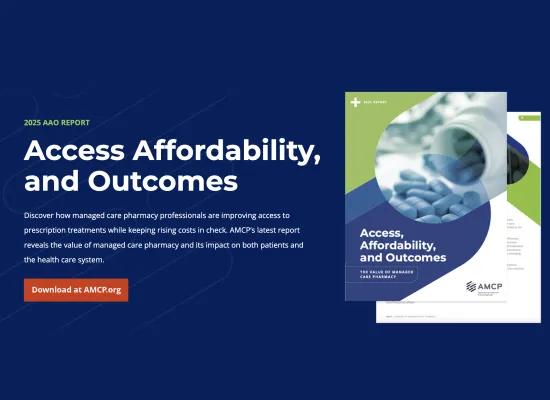
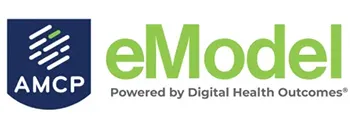
AMCP eModel is the ultimate tool for communication of health economic models and value evidence. Find out more about the new ePoster offering through this tech partnership and platform to support the exchange of clinical and economic information between pharmaceutical companies and payers.

AMCP partners with FormularyDecisions to enhance information sharing and formulary decision-making by creating a platform for current, credible, and compliant information exchange between life science companies and active, qualified healthcare decision-makers.
Featured

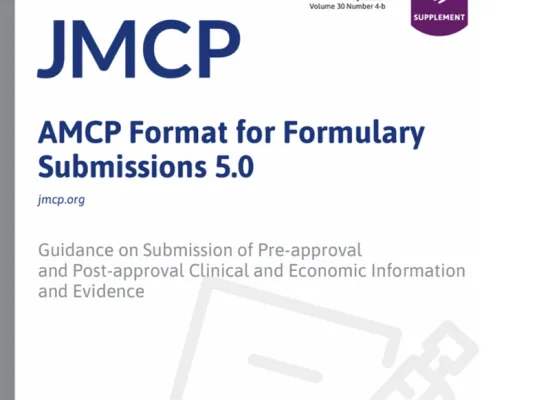


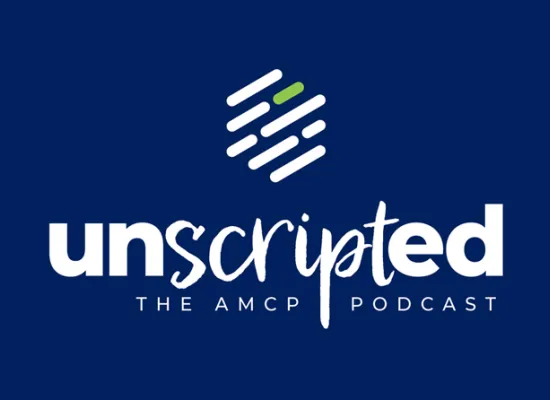
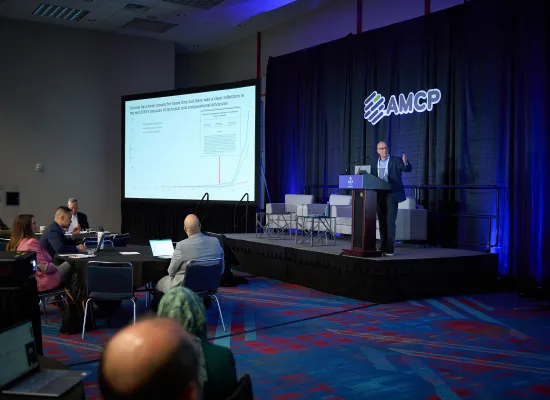
-
Health Information Technology Resources
-
Digital Therapeutics Resources
-
Health Disparities Resources
-
Value-Based Contracts Resources
Meetings Proceedings & Findings
View More
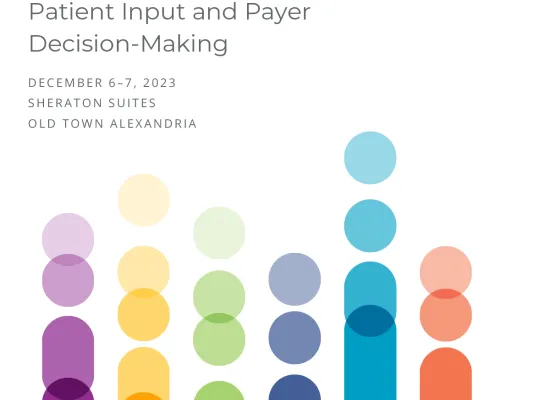

Latest News & Resources
This sponsored webinar reviews DHHS guidelines for regimen initiation and optimization, and 5-year efficacy and safety in treatment-naive adults.
This non-promotional, sponsored webinar reviewed health plan best practice recommendations for continuous glucose monitoring with an impressive panel of clinical and managed care experts.

Health care expert Fred Goldstein, host of the AMCP Podcast Series — Listen Up!, sits down with Marissa Schlaifer and Billy West, AMCP Distinguished Service Award recipients, to discuss the role of AMCP in their careers.

Use of appropriate medication regimens, regardless of cost, may help to improve patients’ conditions, improve quality of life, and lower other health care costs.
This non-promotional, sponsored webinar reviewed health plan best practice recommendations for targeted therapies in oncology with an impressive panel of oncology and managed care experts.

Amyotrophic lateral sclerosis (ALS) is a rare, rapidly progressive, and fatal neurodegenerative disease characterized by loss of motor neurons in the brain and spinal cord. The etiology of ALS is unknown, however it is thought to be due to a combination of genetic predisposition, environmental exposures, and agingrelated dysfunction. The clinical presentation of ALS varies depending on which motor neurons are affected. ALS commonly presents with localized weakness that progresses to muscle paralysis, respiratory failure, and death.

AMCP brought together experts to learn about food allergies caused by the body reacting strongly to certain foods. Food allergies can be difficult to handle and costly for both people and the health care system. New medicines could help prevent allergic reactions, including anaphylaxis, caused by accidental exposure to foods. It is important for health care leaders to make sure people with food allergies see the right doctors, get the right medicine at the right time, and help prevent allergic reactions and related health care costs.

View our Market Insights webinar to explore the latest practice recommendations in the management and treatment of food allergies.

AMCP brought together experts to learn about food allergies caused by the body reacting strongly to certain foods. Food allergies can be difficult to handle and costly for both people and the health care system. New medicines could help prevent allergic reactions, including anaphylaxis, caused by accidental exposure to foods. It is important for health care leaders to make sure people with food allergies see the right doctors, get the right medicine at the right time, and help prevent allergic reactions and related health care costs.

Hemophilia, sickle cell disease (SCD), and beta thalassemia (β thal) are inherited blood disorders likely to see multiple significant novel therapies approved in the near future, including the possibility for partial or complete cures with gene therapies.
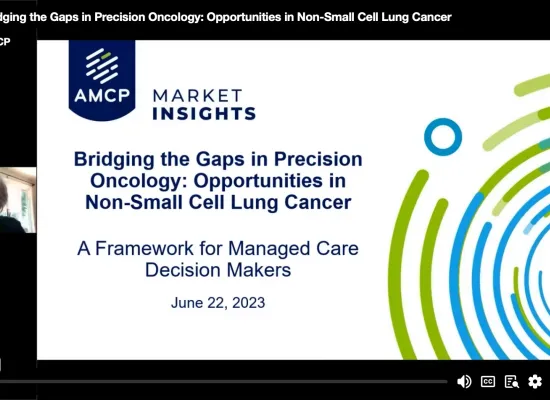
This webinar featured a candid conversation with panelists from AMCP’s Market Insights Roundtable on Bridging the Gaps in Precision Oncology: Opportunities in Non-Small Cell Lung Cancer.
Amyotrophic lateral sclerosis (ALS) is a rare, rapidly progressive, and fatal neurodegenerative disease characterized by loss of motor neurons in the brain and spinal cord. On April 27, AMCP convened an expert panel of clinical and managed care stakeholders to increase understanding on how payers can inform strategies to improve the care and treatment of those impacted by ALS.
